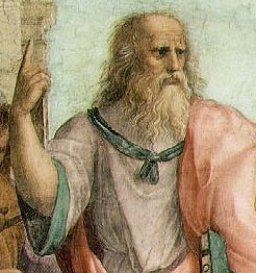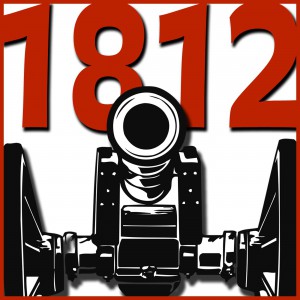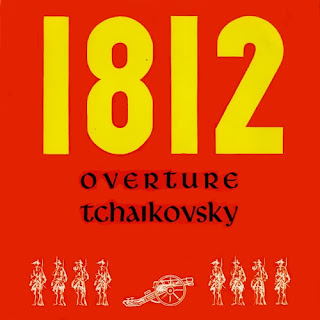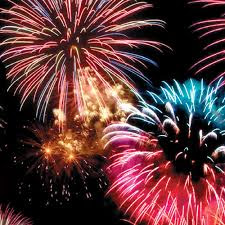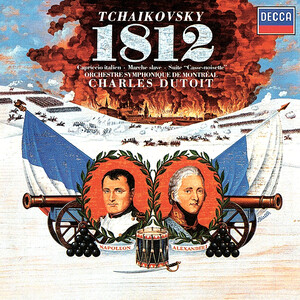"Music gives a soul to the universe, wings to the mind,
flight to the imagination, and life to everything."
AUTHOR: Plato
MEANING OF THE QUOTE:
"Music can highlight everything you do in life."












MEANING OF THE QUOTE:
"Music can highlight everything you do in life."
1812 OVERTURE
Version for:
Orchestra, Choir, Organ,
War Canons, and Bells
Version for:
Orchestra, Choir, Organ,
War Canons, and Bells
TRANSLATION OF LYRICS
Some choral parts were originally introduced around 50 years
ago by Igor Buketoff at Eugene Ormandy's request after he
reconstructed Tchaikovsky's 1812 Overture, setting the
opening section for a cappella chorus, in the style of a Russian
Orthodox chant and the finale for chorus and orchestra.
He recorded this version with the New Philharmonia Orchestra.
(See video above)
"God Preserve Thy People"
Grant salvation to Thy people, Lord,
and we pray Thee bless thine inheritance, O God.
Grant vict'ry to those who fight to save
our righteous faith and our dear sacred land
and from all evil deliver us.
Then the guardian of perfect grace,
the cross will forever be.
The cross will forever be.
The cross will forever be.
and we pray Thee bless thine inheritance, O God.
Grant vict'ry to those who fight to save
our righteous faith and our dear sacred land
and from all evil deliver us.
Then the guardian of perfect grace,
the cross will forever be.
The cross will forever be.
The cross will forever be.
Lyrics at the conclusion
(measure 358)
(measure 358)
"God Preserve Thy People/God Save the Tsar"
Grant salvation to Thy people, Lord,
and we pray Thee bless thine inheritance, O God.
Grant vict'ry to those who fight to save
our righteous faith and our dear sacred land.
our righteous faith and our dear sacred land.
And we pray Thee bless thine inheritance,
our dear sacred land, our sacred land.
our dear sacred land, our sacred land.
God save our sacred land.
God grant us vict'ry, vict'ry against our foe!
God save our sacred land!
Give Us Peace!
1812 OVERTURE
CHORUS PART








1812 OVERTURE
Opening Scene:
Opening Scene:
Russian Hymn
The lyrics change somewhat
depending on who is performing it.
depending on who is performing it.
The following are some lyric variations:
Mighty Lord, preserve us from jeopardy.
Take Thee now our faith and loud crying in penitence.
Grant victory o'er our treacherous and cruel enemies
And to our land bring peace.
O mighty Lord hear our lowly prayer,
And by Thy shining holy light.
Grant us, O Lord, peace again.
O mighty Lord hear our prayer
And save our people
Forever, forever!
Forever, forever!
~OR~
Mighty Lord,
Preserve us from jeopardy.
Take thee now our fate
And glow bright in penitence
And be-e with me
O'er treacherous and cruel and grand unease
and to our land bring peace.
O mighty Lord hear our lowly prayer,
And by light, shinning holy light,
grant us oh Lord Peace again.
O mighty Lord hear our prayer
And save our people
Forever FOR-EV-ER
~OR~
Mighty Lord, preserve us from jeopardy.
Take thee now our faith
COMMISSION OF
THE OVERTURE
THE OVERTURE
ARTICLE MOSTLY FROM:
The 1812 Overture:
The Hit that Tchaikovsky Hated
In 1880, the Cathedral of Christ the Saviour,
 |
| The great Cathedral as it stood 100 years ago. |
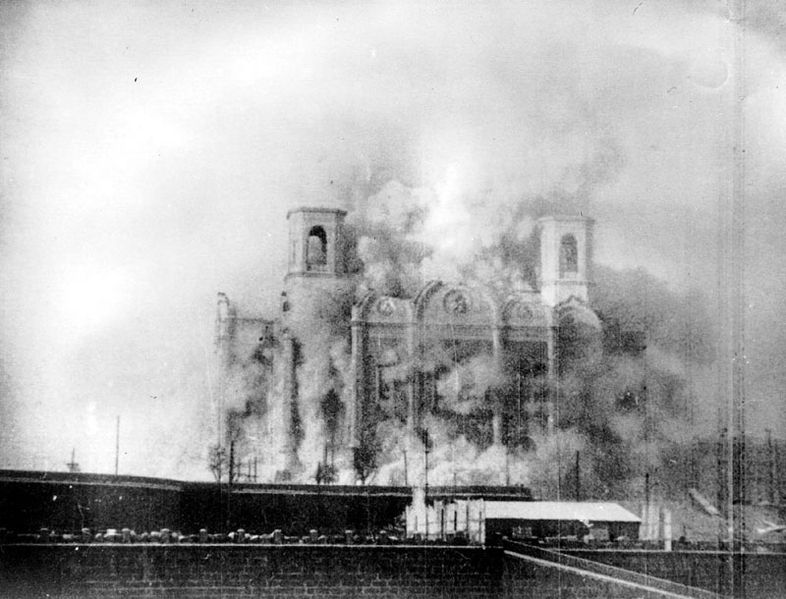 |
 |
| The destroyed church is on the left and the new church is on the right. |
a building (taking over 40 years to complete)
as a memorial to the sacrifices of the Russian
people after the War of 1812, was nearing
completion in Moscow and would be at hand
in 1881 to commemorate the 25th anniversary
of the coronation of Alexander II
 |
| Mihály Zichy: Homage from the Imperial Family to Emperor Alexander II, from the Coronation Book of Alexander II, 1856 |
and the 1882 Moscow Arts and Industry
Exhibition was in the planning stage.
 |
| A colorful postcard with the view from the highway on the exhibition pavilions at the All-Russian Industry and Arts Exhibition in Moscow 1882. |
Tchaikovsky's friend and mentor
suggested that he write
a grand commemorative piece
for use in these (and other) related
festivities. Tchaikovsky began work
on the project on October 12, 1880,
finishing it six weeks later.
Organizers planned to have the overture
performed in the square before the cathedral,
with a brass band to reinforce the orchestra, the
bells of the cathedral, and all the others in downtown
Moscow playing ") on cue—
and cannons, fired from an electric
switch panel to achieve the precision
the musical score required. However, this
performance did not take place, possibly partly
due to the over-ambitious plan. Regardless,
that March deflated much of the impetus
for the project. In 1882, during the Arts
and Industry Exhibition, the Overture was
performed in a tent next to the un-
finished cathedral. The cathedral
was completed on May 26, 1883.
Meanwhile, Tchaikovsky complained
to his patron Nadezhda von Meck

that he was
"...not a conductor of festival pieces,"
and that the Overture would be
"...very loud and noisy, but [without] artistic merit,
because I wrote it without warmth and without love,"
adding himself to the legion of artists who have
castigated their own work. It is this work that
would make the Tchaikovsky estate exceptionally
wealthy, as it is one of the most performed and
recorded works from his catalog.
Tchaikovsky cranked out the 1812 Overture in
six weeks, cutting his imagination loose with
every note and theme designed to tug at Russian
heartstrings. And although the most celebrated
section of the work is inevitably Tchaikovsky's
flamboyant, proto-cinematic finale, its opening
passage is equally spectacular – albeit
spectacularly understated.
NEW YORK DEBUT
In the spring of 1891, Peter Tchaikovsky
made his first and only trip to America
(New York City) to appear at the opening
series for a new venue financed by
industrialist Andrew Carnegie
 |
| Opening of Carnegie Hall, in May 1891, with Peter Ilyich Tchaikovsky |
After conductor Walter Damrosch
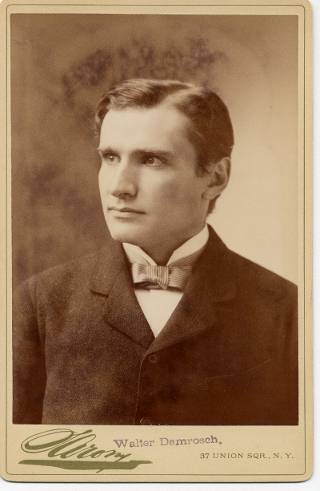 |
| Walter Damrosch, 1889 |
 |
| Andrew Carnegie, 1896 |
to build what would become the famed
Music Hall (renamed Carnegie Hall in 1894),
he needed a big name draw for the Hall's opening
Tchaikovsky once noted that
"people in the United States know my work
better than they do in Russia, in my own home."
The Russian composer's
1812 Overture debuted in 1882,
1812 Overture debuted in 1882,
Carnegie's Music Hall in 1891.

 |
| Adolph Northen: Napoleon's Withdrawal from Russia |
1812 OVERTURE
(another version)
PARODIES TO THE 1812
(1812 Overture, Tchaikovsky)
It was the loudest cannon that you'll ever hear
It was so loud it even shook the chandelier
The drum and bugle player jumped up on a seat
They hoped and prayed it wouldn't fall down on their feet
Critics declaring, "daring, daring!"
Then it exploded!
Boy it was loaded!

What a crash it stopped the show
It landed in the seventh row
But everyone could see
The guy made history
That the great Tchaikovsky's cannonball



The 1812 Overture
1. Tchaikovsky opens the 1812 Overture with what?
2. What does Tchaikovsky do to remind people of Napoleon’s invasion of Russia in 1812?
3. What other theme does Tchaikovsky weave into the music, along with the French theme?
4. Tchaikovsky inserts what sound effects and what songs iat the climax of the music?
5. What military power did the U.S. fight against about 55-60 years ago?
6. Imagine you are to compose a piece of music commemorating this war.
What familiar hymn would you start with?
7. What melodies might remind us of the powers we fought against 55-60 years ago?
8. What American folk tunes could you weave into the music?
LINKS
http://www.bhso.org.uk/repert-173-Tchaikovsky-1812-Overture-Op-49.htm
http://www.gramophone.co.uk/editorial/tchaikovskys-1812-overture-by-geoffrey-norris
http://www.gramophone.co.uk/editorial/tchaikovskys-1812-overture-by-geoffrey-norris
http://www.hymn.ru/god-save-in-tchaikovsky/index-en.html
http://www.capitalnewyork.com/article/culture/2012/01/5168833/
tchaikovskys-bible-archivist-finds-door-new-yorks-distant-past
http://www.orthodoxchristianity.net/forum/index.php?topic=21629.0;imode
http://www.capitalnewyork.com/article/culture/2012/01/5168833/
tchaikovskys-bible-archivist-finds-door-new-yorks-distant-past
http://www.orthodoxchristianity.net/forum/index.php?topic=21629.0;imode
http://www.scoreexchange.com/parts/269007.html
http://makingmusicfun.net/htm/f_printit_free_printable_sheet_music/
eighteen-twelve-overture-for-piano-solo.htm
http://makingmusicfun.net/htm/f_printit_free_printable_sheet_music/
eighteen-twelve-overture-for-piano-solo.htm
http://www.trumpetherald.com/forum/viewtopic.php?t=33830&view
=next&sid=ecd861c34273cd629c85a1f911e34cab
=next&sid=ecd861c34273cd629c85a1f911e34cab
